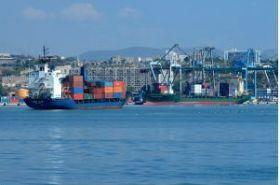
Container terminals at the port of Marseille Fos were not functioning for the second consecutive day, according to the port authority’s Claire Battedou, as a result of maritime strikes that are part of a broader, cross-industry, nationwide protest against president François Hollande’s labour reforms.
Other ports have also been affected, with Brittany Ferries cancelling multiple shipments between the UK and northern France.
Workers’ unions are calling for the reversal of controversial government labor reforms that make it easier for employers to hire and fire staff, purportedly designed to encourage firms to recruit.
Happily for Marseille Fos, the strike, which comes to an end tomorrow (at least for the time being), has come during one of the quieter periods for fruit and vegetables in France.
“The dockers resume work on Saturday,” Battedou told Eurofruit. “According to the operator at the Seayard container terminal, there is little shipping of fruit and vegetables in May to June, as we consume our local production, so the strikes have had little impact.”
The port has also been encouraged by the successful completion of a second consignment under the new EU pilot project to create sea-rail logistics corridors and slash transit times for perishable goods from the Mediterranean to central and northern Europe.
However, fuel shortages are becoming a major problem across the country. An umbrella group of French business leaders this week issued a joint statement saying transport strikes and problems with fuel supply were 'beginning to impact economic activity in our country'.
In addition, France's main farmers' union, the FNSEA, has asked the government for priority in receiving fuel supplies to protect trade from the effects of the strikes.
'The FNSEA request the government to grant waivers which are necessary to keep the farming sector going,' read the statement, describing the period as 'critical” for the agricultural sector.
“Farmers have already reported delays in receiving their supplies, as well as in the delivery of their products,” the statement continued. “For products such as horticulture or fruit and vegetables, a large part of annual sales takes place over the coming weeks.”



